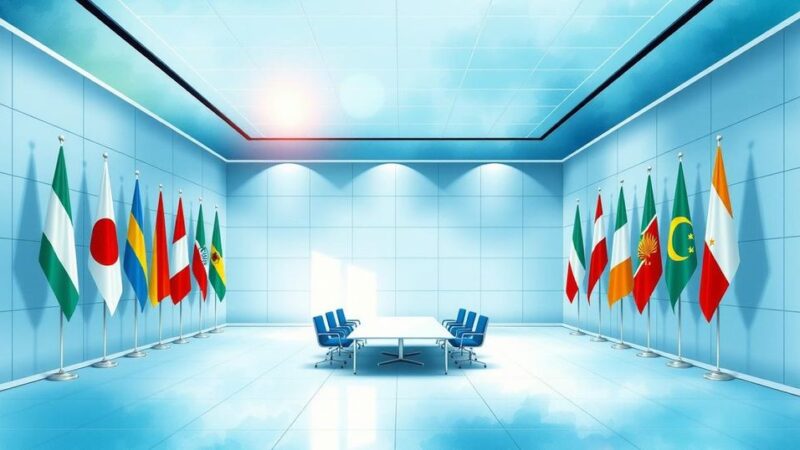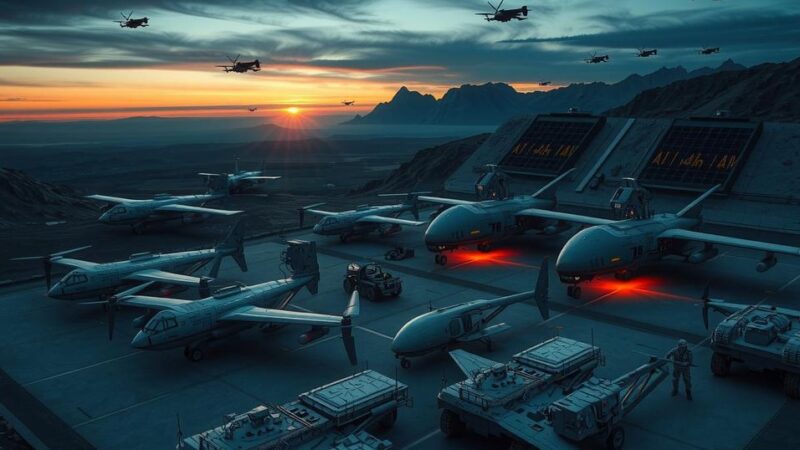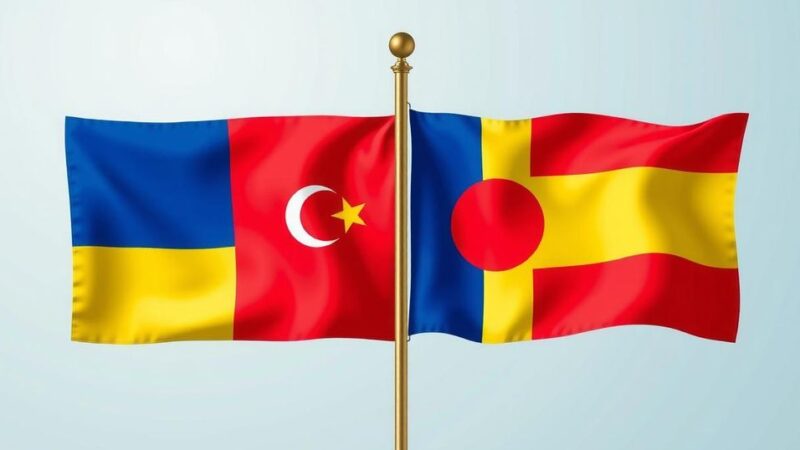Technical discussions aimed at a ceasefire between Russia and Ukraine will commence in Saudi Arabia on March 24, 2025, as announced by U.S. envoy Steve Witkoff. Following a productive conversation between President Trump and President Putin, negotiations appear optimistic yet are clouded by recent military actions by Russia. Key figures such as Secretary of State Marco Rubio and National Security Advisor Mike Waltz are expected to participate, with the agenda including a proposed 30-day ceasefire.
The upcoming ceasefire talks in Saudi Arabia are a crucial development in the ongoing Russia-Ukraine conflict. U.S. envoy Steve Witkoff announced that technical discussions aimed at establishing a ceasefire will begin on March 24, 2025. He expressed optimism regarding a potential ceasefire agreement, suggesting that negotiations could significantly progress within weeks.
A productive two-hour conversation occurred on March 18, 2025, between U.S. President Donald Trump and Russian President Vladimir Putin. Following this dialogue, both leaders agreed on a preliminary pathway toward ceasefire conditions, indicating goodwill from both parties involved. Witkoff emphasized the importance of committing to the process during his interview with Bloomberg Television.
Witkoff noted that technical teams are prepared to meet in Saudi Arabia, aiming to finalize discussions surrounding a proposed 30-day ceasefire. This proposal includes the cessation of attacks on energy infrastructure, which the Russians seem amenable to. However, the extent of Ukrainian agreement on these terms remains uncertain, with doubts about their representation in the talks.
National Security Advisor Mike Waltz reaffirmed optimism after discussions with his Russian counterpart, Yuri Ushakov, regarding the implementation and potential expansion of the previously established partial ceasefire. Waltz’s remarks reflect a collective desire to end hostilities and move toward peace.
Despite these hopeful negotiations, recent reports of renewed Russian drone strikes on Ukrainian civilian infrastructure underscore the fragility of the situation. Such attacks raise concerns about both parties’ commitment to pursuing peace, particularly after Putin’s order to halt military actions against energy targets.
Witkoff highlighted the necessity for substantial commitment from all involved to advance toward a resolution. His comments underline the essentiality of mutual understanding in facilitating peace and stability. The discussions hold significant weight for future relations in the region, with the potential for a face-to-face meeting between Trump and Putin also on the horizon.
The talks scheduled for March 24 will serve as a significant test of diplomatic efforts in achieving a sustainable resolution. Witkoff acknowledged, “We, of course, have some details that need to be discussed,” indicating the importance of clear communication in the upcoming negotiations.
While there is cautious optimism regarding the outcome of the Saudi talks, their success remains uncertain given the complexities of the ongoing conflict. The Biden administration has emphasized its dual commitment to diplomacy and deterrence, underscoring the necessity for balanced approaches to resolve prolonged disputes. As stakeholders prepare for the discussions, the international community remains hopeful for positive advancements toward peace in this conflicted region.
The impending ceasefire discussions in Saudi Arabia mark a significant effort in the ongoing Russia-Ukraine conflict. With U.S. envoy Steve Witkoff expressing optimism and key figures participating, the technical talks aim to implement a potential 30-day ceasefire while addressing core conflicts. Despite hopeful developments, recent escalations in military actions by Russia raise concerns about commitment to peace. Ultimately, the outcomes of these discussions will play a critical role in shaping the future landscape of international relations in the region.
Original Source: evrimagaci.org






